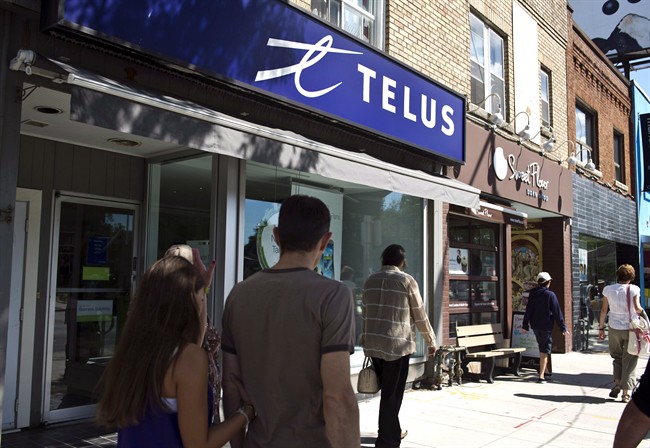TORONTO – Ottawa’s scheme to lure a foreign cellphone giant to Canada appears to have at last died on Monday, as a list of bidders in a government auction for airwaves planned for January confirmed there was zero interest from outside parties.

As expected, not a single refundable deposit was put down by any U.S. cellphone operator. Despite some late speculation, others such as Vodafone and Europe’s Telenor also allowed last week’s deadline to come and go.
On the list of 15 bidders are familiar names: Rogers, Bell, Telus, who now appear poised to carve up three blocks of airwaves to add to their rich reserves of spectrum that will support their efforts to sell faster wireless Internet services.
But what’s the rush? Wind Mobile has put down a deposit, but analysts are skeptical the smaller carrier will be able to muster the funds to outbid incumbents and secure the necessary amount of spectrum needed to offer comparable mobile broadband services.
Canadian investors Birch Hill and Catalyst Capital have signed up, and will be bidding against Wind for the scraps left by the others. Analysts say private equity bidders will have no interest in setting up a competing carrier, and will likely look to lease the airwaves to whichever carrier will pay them the most.
What it all means for wireless prices—which the government has waged a seven-year campaign that’s bent rules and changed laws to lower—isn’t immediately clear, but analysts don’t see any downward pressure now the threat of a long-term fourth competitor to the Big Three has subsided.
“We do not expect the competitive dynamics in Canadian wireless to change much as a result of the auction,” Dvai Ghose at Canaccord Genuity said. “Incumbents win, government loses.”
“We believe this bodes well for Rogers, Telus, BCE,” Scotiabank’s Jeff Fan said.
Shares in the country’s big wireless players were trading up Monday morning, with the biggest among them, Rogers, rising 1.3 per cent to $45.45 a share.
With a market that looks to be reverting to the same kind of environment that pushed Canadian wireless prices to the highest in the world several years ago, regulators are weighing whether to step directly into setting prices in certain areas, like roaming.
Incumbents appear to be outflanking those efforts by voluntarily resetting roaming rates. Last week, Bell slashed costs on its U.S. roaming plans, for example.
The CRTC could also move to lower costs paid by Wind and Mobilicity to Bell, Rogers and Telus when their customers roam outside the smaller carriers’ own network footprints.
Still, with Wind still losing money and a parent looking to sell the business, analysts say the move may be too late. Meanwhile, Mobilicity and Public Mobile, two other new entrants to the market struggling to become viable, both elected to skip next January’s auction, likely because they lacked the resources to compete.
“While the government could slash domestic wholesale roaming rates, we wonder how many new entrants will survive,” Ghose said.
- Canadian man dies during Texas Ironman event. His widow wants answers as to why
- Several baby products have been recalled by Health Canada. Here’s the list
- ‘Sciatica was gone’: hospital performs robot-assisted spinal surgery in Canadian first
- Dating apps ‘worse than ever’ for your privacy, report warns




Comments